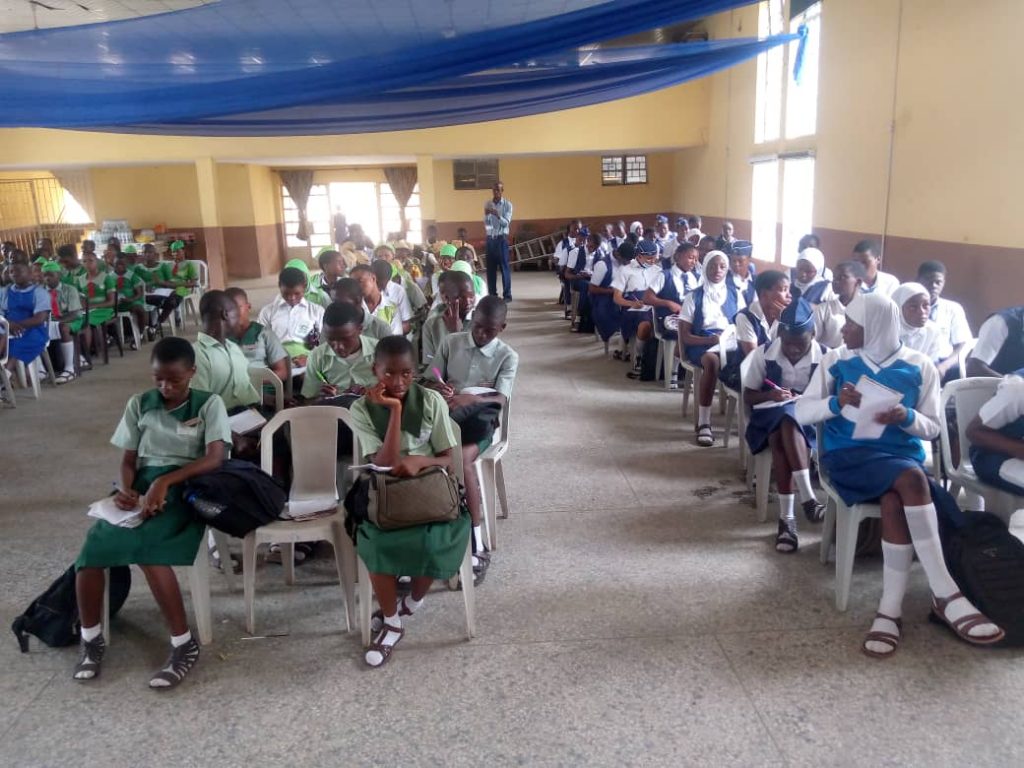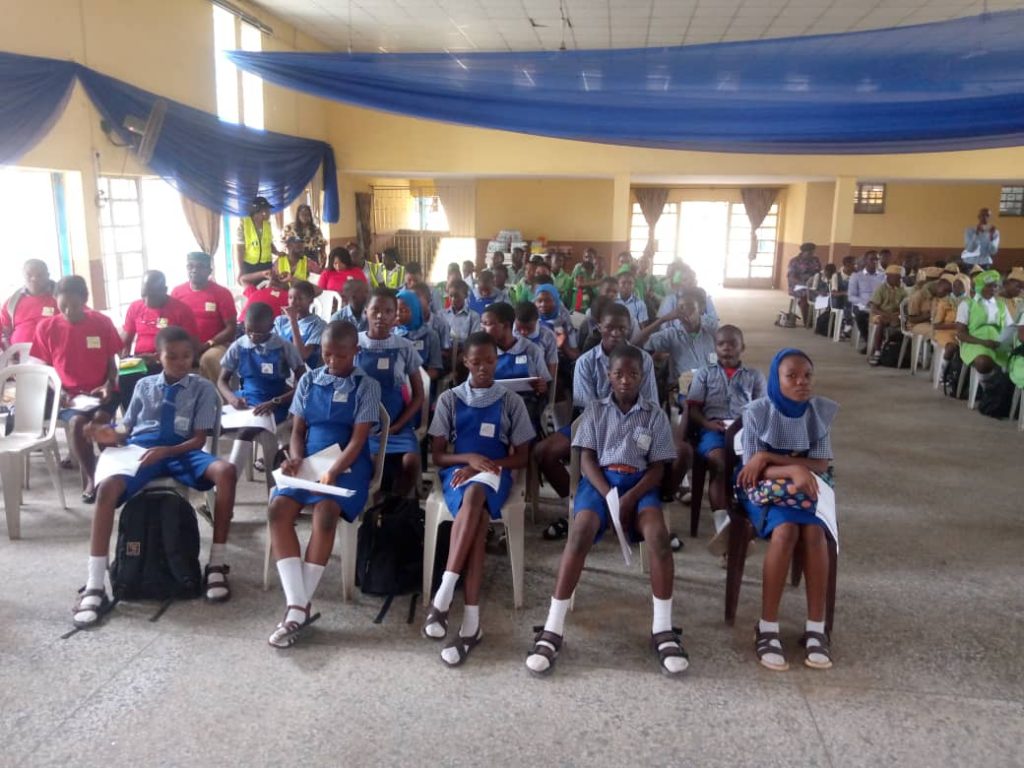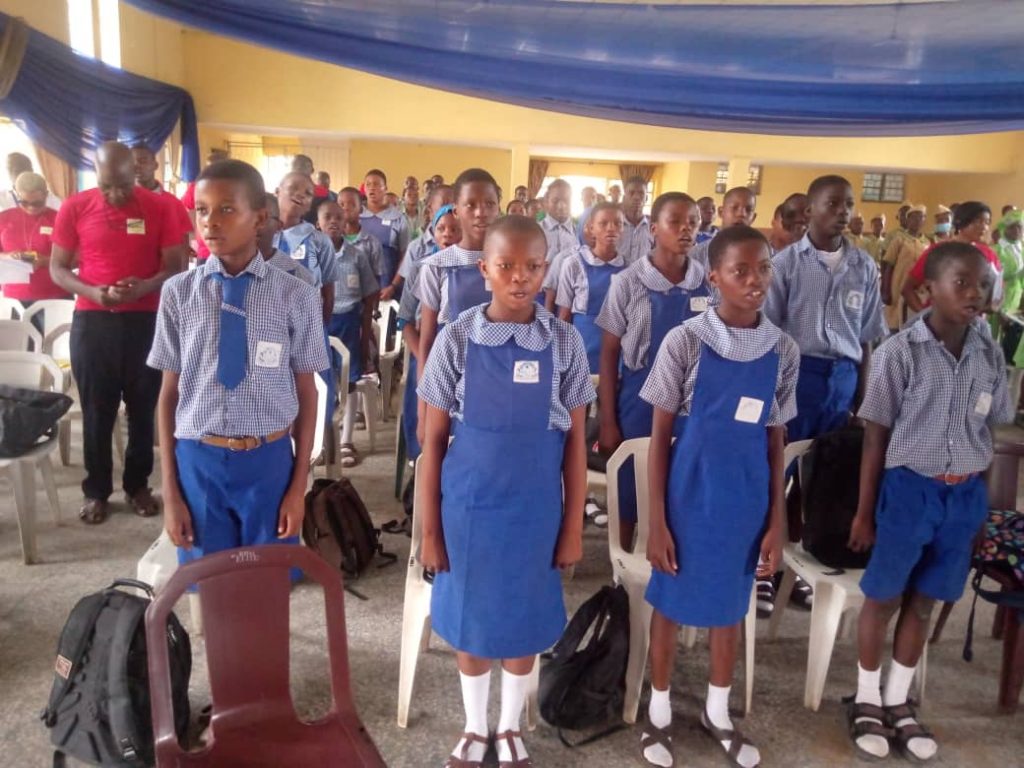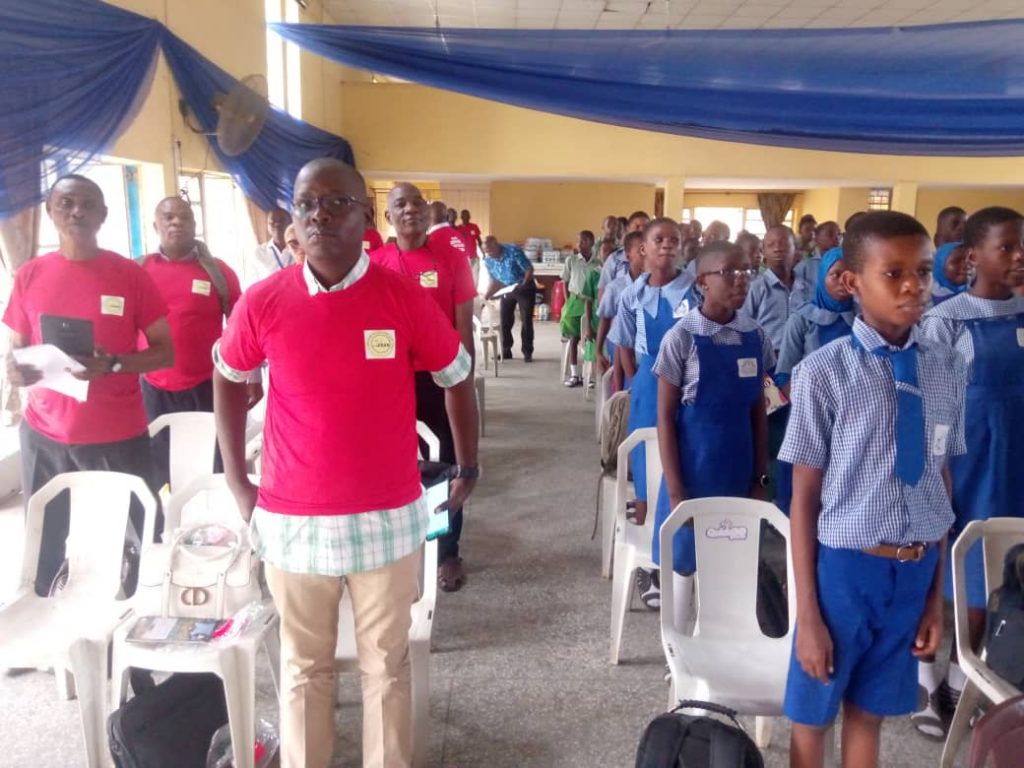MEET FRANK OSHANUGOR
Under-Age Criminals Can Go To Prison, Police Tells Youths At Anti-Drug Day Summit

By Frank Oshanugor
As journalists under the aegis of the Crime Reporters Association of Nigeria (CRAN) hold a one-day sensitisation programme for secondary school students on the dangers of illicit drugs, the Nigeria Police has declared that anyone under the age of eighteen convicted of any criminal offence can be sentenced to some prison term by the trial judge or magistrate.

The clarification came on the heels of widely held belief in some quarters that minors (those below age of 18) are statutorily exempted from trial or conviction on criminal charges.

Speaking on Monday at the conference organised by CRAN to mark the 2022 edition of the International Drug Day at Ikeja Grammar School, Bolade Oshodi Lagos, the Police Public Relations Officer (PPRO) Benjamin Hundeyin who represented Lagos State Commissioner of Police at the event explained to students of the nine colleges who attended the conference that “minors who keep committing crime repeatedly after one or several warnings can be tried under the extant law and be sentenced to prison terms accordingly if found guilty.”

The only difference according to him is that such convicted minors might not housed in the same Correctional Centre with adult convicts but at juvenile prisons.
While explaining to the students the dangers of engaging in illicit drugs, said such drugs have the capacity to lead them into big crime at very tender ages. According to the PPRO, a 12-year-old boy who indulges in hard drug can easily commit murder which ordinarily he could not do with his right senses.

The one-day summit organised by CRAN in collaboration with the Nigeria Police, National Drug Law Enforcement Agency (NDLEA) and National Agency for the Prohibition of Trafficking in Persons (NAPTIP) had attracted no fewer than 180 students from nine Lagos based secondary schools among which were Ikeja Grammar School, Oshodi Comprehensive School, Bolade Grammar School and so on.

In his welcome address, CRAN President Lekan Olabulo pointed out that the wave of drug addiction pervading Nigeria has increased as a result of involvement of youths particularly students and pupils in the abuse of drugs. He explained that most of the youths have now imbibed the use of substances like Indian Hemp and off the counter drugs like Rophynol, Tramadol, Diazepam and Lexotan which are controlled drugs that ordinarily should only be sold on doctor’s prescription.

According to Olabulo, “the consequences of these menace have been far reaching across board as it has led to the prevailing cases of banditry, kidnapping, unwanted pregnancies, burglary, broken homes and an upsurge in crime.”
The CRAN boss pointed out that though the crisis is not new, it has become worse, exacerbating into economic, social and physiological crisis, which if unchecked, portends grave danger to the society at large. “Consequently, the menace is more worrisome to all and sundry because the victims and traffickers of these drugs live in the society as neighbours, children, friends, students, sibling and spouses or even parents.”
He pointed out that “it was in a bid to join the campaign against the hard drug menace that CRAN decided to organise the panel discussion involving major stakeholders in the fight against drug abuse.

A global trainer on drugs; Dr. Olatunde Isaac gave a detailed lecture on how hard drugs affect the central nervous system and disorganises the entire body system including the sense organs. He advised the youths to keep away from illicit drugs.
General Manager of Africa Independent Television (AIT) and Director of Action Now Against Drug Abuse (an NGO) Mrs. Yewande Iwuoha advised the students to engage in a rewarding ventures like sports, vocational training etc rather than indulge in drug abuse.

Assistant Commandant of Narcotics; Mr. Oke Senai who represented the Lagos Commandant of NDLEA, Mr. Callys Alumina said the conference was important because of the danger hard drugs pose to the entire world.
Other participants at the occasion who harped on the need for more awareness creation on the dangers of hard drugs included Mr. Taiwo Adegboyega from NAPTIP and Hon. (Mrs) Olatubusun Animashaun.

